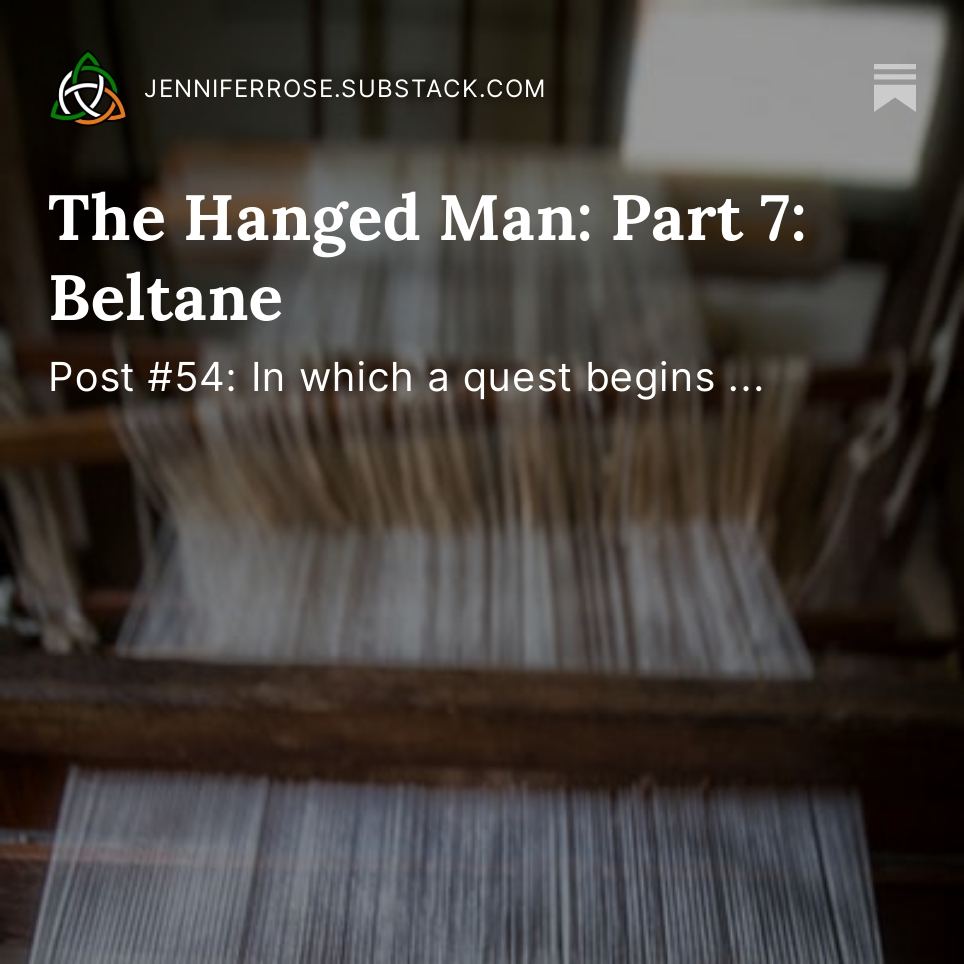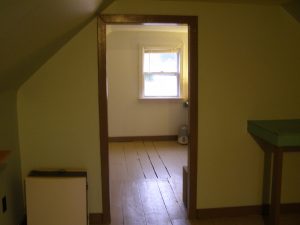by Jenny Rose | Jan 7, 2023 | A Flourishing Woman, Mind
Regular readers will know I struggle with money. The first time I wrote about it was here. About three months ago, I came across a creative prompt suggesting inviting Money to dinner and seeing what happened. I wanted to engage with it. I didn’t want to engage with it. I didn’t delete the article. It’s been sitting in the bottom of my Inbox sneering at me all these weeks. Finally, I decided to play with it …
I’ve unwillingly invited Money to lunch. She suggested it three months ago because she wants to see my new house. I’ve avoided it, tried not to think about it, even forgotten about it for days at a time, allowing the layers of my life to gently cover it, but then it shows up again, a small piece of grit in my psyche.
Finally I’ve reached a point where I’m ready to get it over with. She’s not going to get tired of waiting for me. She wants to see my new home, and she wants to have lunch. I can’t deal with the silent demand and the weight of her expectations any longer.
After all, it’s only a lunch, right? Two hours at the most.
Having made up my mind, I decide what will work best for me. I feel resentful, railroaded into doing something I don’t want to do. Why can’t I just say no and feel okay about it? Why do I feel I have to do this? I hate the feeling of being pushed, being badgered, being emotionally manipulated. Most of all, I hate how much I care about what she thinks. I hate my fear of her judgement.

Photo by Gemma Evans on Unsplash
I don’t want to do this. I really, really don’t want to do this.
But I feel I have to. I can’t possibly tell the truth. It’s lunch, for God’s sake. Why do I make such a big drama out of everything? What’s with the dread? Why can’t I just be a normal person, get it over with?
I eat alone, so my round, glass-topped table is small and there’s only one chair. I’ll bring another chair in. Which would be most comfortable for Money? She’s a small person. The second chair is an antique, but it’s not as sturdy or large as the one I always sit in. Would it be a subtle compliment to give her that chair, or is it too old-fashioned to be comfortable and welcoming?
I can’t put flowers on the table because the cats will destroy them.
I have cloth napkins that match the tablecloth I’m using; that’s good. That looks nice.
My kitchen, where the table is, needs work. We haven’t been in this house long. The kitchen is outdated and battered, the formica countertops stained and pitted. The stainless steel sink has old drips of paint in it I can’t scrub away and haven’t taken the time to tackle more resolutely. The refrigerator is too big and partially blocks the pocket door into the bathroom. The litterboxes are tucked under a bench along one wall near the door leading to the entry; I don’t yet have a good place to set up the cats. Their food and water are on a boot tray on the floor in the kitchen. The floor is lovely old pine with wide boards, scratched, scarred, stained.
I try and fail to see my home, my kitchen, my kitchen table, through another’s eyes. It so clearly needs work, but, to my shame, I don’t have the money to get the work done. I may never have the money to get the work done. Yet I’m grateful to have a roof over my head, and this lovely old house as a refuge from the world. I love it. I don’t want to have to defend it or feel ashamed I can’t give it the care it needs right now. It’s clean, at least.

New Home, May 2022
Since this invitation was not my idea, and Money is not a friend, I don’t feel I must make a meal. I basically eat meat and high-quality animal fat. I don’t have the time, skill, or money to make an elaborate meal. I’m afraid to make something simple, like a big beef stew. Whatever I do, I’ll feel it’s not good enough. We agree, Money and I, to get a to-go order from a local restaurant. That way, if she’s disappointed, it’s got nothing to do with me. I make sure to insist I pay for my own order. I don’t want any favors from her.
I know the cats are going to be on the kitchen counter, in the sink, walking across the stovetop. It’s what they do. There’s no way to keep them off the counters. Believe me, I’ve tried it all. One of them will probably choose the time we’re sitting a few feet away to have a big, stinky BM in one of the litter boxes with lots of noisy scraping and covering while we’re eating. Then they’ll jump out, scattering litter across the floor, come into the living room adjacent to the kitchen, and scoot their dirty bottom across the carpet and try to cover that. I’m mortified, just thinking about it. Do I pretend it’s not happening, like when you’re talking to a cute guy and your leashed dog squats to take a dump? Do I get up from the meal, scoop out the litter box, spray the scoot mark with stain remover and sponge it away while it’s still fresh and visible? I can keep them off the table, at least, while we’re sitting there eating. But there might be cat hairs.
Who am I kidding? There will definitely be cat hairs.
What will we talk about? That one is not so hard. I’m good at drawing people out. Most people love talking about themselves. A few good questions can get the ball rolling and I can stay safely concealed.
When Money arrives, I greet her at the door, hoping she doesn’t notice the rotted sill and threshold, the damaged door frame, and the fact that the outside door has gaps underneath it large enough to admit a squirrel in search of winter housing. I take her through the lovely, shabby, wood-lined sun porch, another door that has clearly been kicked in at some point, and into a narrow little hallway leading to the kitchen door. Everything is clean, swept, mopped, scrubbed. I give Money the tour of my living space. The cats come to investigate. (Does Money even like cats? I don’t know. I don’t want to know in case the answer is no. If she doesn’t like cats, one is sure to jump in her lap.)

Izzy & Ozzy; Fall, 2020
Money has picked up our order. I gather cutlery, plates, glasses. We sit down to eat. I am nervous, tense. The last thing I want to do is eat, but I do. I ask a couple of questions to get her talking and we chat in between bites. I wait for the curled lip, the sneer hidden within polite words, the fleeting contemptuous expression on Money’s face I know will be coming.
Money’s fingernails are unpainted. She’s wearing plain gold hoops in her ears. She’s dressed in unmatched leggings and a sweater. No makeup. I realize I expected something quite different …
And then my flow dried up and I came to a sudden stop, realizing I expected, in fact, my late maternal grandmother, who was always made up, bejeweled, well-coiffed, and wore little designer or custom-tailored (in Hong Kong) skirts and jackets and high heels. I expected her gold watch, expensive perfume, perfect manicure, and big, heavy rings. I expected her vivacious social cocktail chatter (gold monogrammed cocktail napkins). I expected her small brown eyes to turn mean, to tell me to act like a lady, to use my napkin, to keep my knees together. I expected the Jekyll-and-Hyde experience of watching her flirt, even when well into her 80s, and smile, and bat her nearly denuded eyelashes, still thick with mascara, with every male in the room and then the sharp little knife buried in a smiling comment or an aside about my looks, my conversation, my choices, and my behavior.
Gram, as we called her, had money. A lot of it. She was widowed young, inheriting considerable wealth from my grandfather. When her daughter, my mother, was divorced with two young children, Gram financed the family. By which I mean she demanded invoices, receipts, and bills, and gave Mom just enough to cover things and no more. No allowance. No lump sum. Mom had to ask specifically for every penny. Gram made her grovel. It was an exercise in humiliation. When Gram came to visit she hounded Mom about her marriage (Gram hated my father), her divorce, her stupidity and bad judgement. Mom went back to school to get a degree in order to get a job and support her children. We became latch key kids. I was assigned to care for my younger brother; we both were assigned to care for the animals, though the horses were sold during the divorce, taking the core of Mom’s happiness with them and leaving only bitterness and grief behind.

Photo by Hailey Kean on Unsplash
Every night, after I went to bed, I listened to Mom cry while she sat at her desk in her bedroom down the hall and dealt with the bills and finances or did coursework. I was often hungry because I felt guilty about eating food Mom would have to ask Gram to help pay for. I was 11 years old. Yet Mom remained loyal, thanking Gram for her grudging support, telling everyone how lucky we were to have her mother, who loved us, to help out. I don’t think she dared do anything else. Mom cared for her mother until the end of her life, when she died in a nursing home in her 90s.
Only one time did Mom break down in front me. “I’ve never pleased that woman one single day in my life,” she sobbed. It was true. She didn’t. And she tried every single damn day. I never pleased Gram a day in my life, either, but I didn’t try. I did not love my grandmother.
That moment of truth was never referred to again. By either of us. I’m sure, had I tried to talk about it later, Mom would have denied saying it. The world, especially her male relatives, saw Gram as charming, entertaining, gregarious, and generous. She could be all those things. But could also be abusive, toxic, selfish, and manipulative. She became (I discover), in my mind, the face and personification of Money. Money weaponized. Money withheld. Money rather than love or true connection. Money as a tool for power, control, and shame.
Every dollar of “help” Gram gave us was, as far as I was concerned, soaked in Mom’s blood and tears.
So, I’ve had a difficult relationship with money. Surprise, surprise. This exercise revealed to me the roots of my self-sabotage and conflicted feelings about “success,” which in my family meant plenty of money. In many ways I feel very successful, but I’ve always struggled financially. The work I’ve done and loved (being a librarian (yes, I have a degree); working with animals, children, the elderly; teaching swimming; lifeguarding; working in the public school system; working in hospitals; storytelling; and medical transcription) are not high-paying jobs in terms of money. The work of my heart, writing, has so far not earned me a single penny. All this contribution, all this creativity, all this love and care for animals and people and books, doesn’t count and is a matter of shame because I haven’t made much money. How sad and messed up is that?
My car is falling to pieces. My house needs work. I buy clothes at thrift stores. I’m a minimalist. I could use more money. I hate to admit it, but it’s true. It would help. A lot. But it wouldn’t fix everything I struggle with in life. I’m clear about that, too. And money is not love or success. Money is a tool, one I’ve mostly refused to consider learning to use. So I haven’t. What’s the point? I don’t have any! I’ll never have any. I don’t want Money to come to lunch because it’s wrong to need it and I do. I’m certain I don’t deserve it, because I’ve failed the family expectations, but I need it. Convoluted. Tricky. My personification of money in this exercise exposes a lifetime of shame about needing money, or any other sort of support or resource, to be honest. Which is ridiculous. Because the less money I have, the more I need it. And the more ashamed I feel. And so on.
At the same time, I’m proud of my contributions to the world. I’ve loved all the jobs I’ve had. I like to work. I like to volunteer. I have no plans to retire. I’ve been richly rewarded for my service in far more important and meaningful ways than monetarily. I’m proud of my self-sufficiency.
But those things won’t pay down the equity loan or fix the car. They won’t pay my bills.
Maybe I’ve never clearly seen Money at all, because I can’t look past my grandmother. Maybe Money doesn’t wear her face, but another I’ve never glimpsed. Maybe it’s time to grow up and out of that old anger and rejection of anything Gram stood for …
So this is the story of when Money came to lunch.
Questions:
- If you imagine an issue or feeling you struggle with as a person, what would that look like? What issue or feeling would you start with?
- What feelings are attached to your experience of money?
- How do you define success?
- What contribution are you most proud of? Is it the one that made the most money?
Leave a comment below!
To read my fiction, serially published free every week, go here:
by Jenny Rose | Mar 26, 2022 | Emotional Intelligence, Feelings
Courtney Carver from Be More With Less suggests the feeling we call guilt may in fact be discomfort.
What an interesting distinction. I was immediately intrigued.
Guilt is defined as feeling responsible or regretful for a real or perceived offense.
A real or perceived offense.

Photo by Cristian Newman on Unsplash
If you’re someone like me, you feel almost everything you do and say is some kind of a breach of conduct, especially things like saying no, meeting your own needs, and setting boundaries. This feeling is based on past unhappy/critical/invalidating reactions of others to my actions. If I’ve Failed To Please, I feel guilty. I feel guilty even when I know I’ve done the right thing for myself.
So what if that feeling isn’t guilt at all? What if it’s discomfort?
Changing habits is uncomfortable, no doubt about that. Habits are effortless, especially mental and emotional habits. They feel like our friends. They’ve been with us a long time. We’re attached to them because they’re easy and familiar. Whether or not they’re effective or useful is not the point. How they affect others is of no interest.
They’re easy, and they’re ours.
The thing is, our habits don’t belong to us so much as we belong to them. We can stop them any time, we tell ourselves and everyone else. If we wanted to. But we don’t want to.
So there.
Breaking habits takes intention, focus, and determination. Support helps, but sometimes it’s unavailable.
So, do we feel guilty because we’re making different choices than our habits dictate, or do we feel uncomfortable because we’re making different choices? Making different choices affects those around us, and when things start changing, people get uncomfortable, especially if the change wasn’t their idea. Most people are sure to tell us when we “make” them uncomfortable.
Then the guilt starts.
Maybe discomfort, theirs and/or ours, is a good sign, a sign we’re truly doing the work of change. Maybe the guiltier/more uncomfortable we feel, the more successful we are.
Maybe we shelve the guilt and welcome the discomfort.
Sometimes we all do something we know is wrong and guilt helps us learn and make amends for our choices. Sometimes. Not every day, all day.
Being alive, taking up space, growing, learning, and reclaiming our power and health are not worthy of guilt. Uncomfortable work, yes. An offense, a breach of conduct, a crime, no.
When I feel that old familiar guilt come knocking, I’m going to look at it more closely. Maybe it’s not guilt at all. Maybe it’s just discomfort.

Photo by Gary Bendig on Unsplash
by Jenny Rose | Feb 5, 2022 | Choice, Power
I’m doing it again. Dissenting. Doubting. Questioning the status quo. Looking for new or buried information.
Thinking critically, in other words.
I know unthinking conformity is convenient, but I’ve always been an inconvenient sort of person.
It’s lonely.
This time it’s about diet, and fat, and cholesterol.
I’ve written several posts on this subject before. Here’s the first one.

Photo by Lukas Budimaier on Unsplash
I know it’s all wrong to eat meat and animal fat and stay away from plant-based food of any kind, but it solved my health problems.
I’ve had a lot of bad experience with doctors. For much of my life, I’ve been completely intimidated by doctors or anyone else in authority, especially men. I’m not afraid of blood draws and exams, but unable to speak up for myself, ask questions, or dare to Fail To Please in any way. Which means in and out of the office as fast as possible, making no fuss, not speaking except to answer questions succinctly, never disagreeing, and thanking the doctor extravagantly for their time and trouble, even if (especially if) I felt completely unseen, unheard and unsupported.
(Oh, and desperately minimizing any problems I do have so as not to be a whiner or come across as drug- or attention-seeking. Because it’s bad to need help.)
In short, fawning from the beginning of the appointment to the end.
This experience has meant I avoid health care, aside from well-woman exams and an occasional emergency visit for antibiotics or an injury.
When I have been to the doctor for things like chronic pain, insomnia, depression, and anxiety, I’ve been offered medication rather than information. I don’t want to take long-term medication. I want someone to help me understand what the underlying problem is, not slap a band-aid on it. That means I want to exchange information, which takes time, and ask questions. I want to be given resources and options.
Here in Maine I’ve found a health care provider I like and respect. She’s intelligent, personable, and doesn’t make me feel as though I’m nothing but a nuisance. With her help, I’ve caught up on all appropriate scans, screens, and tests. It’s nice to feel empowered to take care of my own health.
However, part of screenings and tests for women my age have to do with identifying risks for cardiovascular disease, and according to current standards of care I am at risk, solely because of my diet and cholesterol panel.
Current guidelines and standards are built on the longstanding lipid hypothesis, which states diets high in animal fats lead to atherosclerosis, which leads to heart disease. Other, equally longstanding evidence-based data from around the world over a span of decades suggests the opposite, not only that cholesterol is not an indicator of heart disease, but it’s actually protective against it, especially for women. Many doctors, Ph.Ds, and biochemists believe the lipid hypothesis is false and based on a severely flawed original study, which means all the current guidelines (diet and nutrition recommendations and pharmacology to reduce cholesterol) and standards of care built upon it are ineffective, at best. This is validated by staggering and rising rates of obesity, diabetes, heart disease, and other health problems in the American public since the lipid hypothesis began to change diet and nutrition guidelines, food production, and medical care in the 1950s.

Photo by freestocks.org on Unsplash
However, the lipid hypothesis is enormously lucrative for Big Ag, Big Pharma, and food producers, and those entities have frightening wealth and political power, more than enough to successfully stifle any funding for unbiased studies, silence independent scientists researching diet, fat, and cholesterol, and corrupt or bury any data that does not support the lipid hypothesis.
I am not getting my information from Facebook or conspiracy theories. I’ve spent years researching and reading, both in books and online, about diet, fat, and cholesterol. I don’t take the position that current cardiovascular guidelines are wrong, but neither am I convinced they’re right. I don’t know, and I know I don’t know, but the evidence tells me there’s plenty of room for doubt. My experience tells me a high-fat, low-to-no-carb diet is the key to my own health.
I want to have a discussion about it with my healthcare provider. I want to talk about studies. I want to ask questions. I want to be allowed to have doubts and concerns. I want to weigh my overall excellent health and function against numbers that may or may not have much to do with heart disease. I want to share links and be given suggestions for research.
I want to consider the possibility that current standards of care are based on a hypothesis that is incorrect.
I scheduled a phone call to discuss some of my test results. My provider expressed her concern about one particular result and thanked me for an email I had sent her, containing several links and information sources I find useful and interesting.
She was polite. I was polite. But our previously warm and friendly connection had vanished. I don’t believe she read anything I sent. I asked a couple of questions about studies and different ways to assess cholesterol panel results, but she dismissed it all. Flat. Businesslike. Professional.
It was a disappointingly brief conversation. I was clear about what I would and would not do. We came up with a plan. We hung up.
I spent the rest of the day feeling like an extremely anxious, difficult, bad child, waiting for catastrophe because I Failed To Please.

Photo by Ashkan Forouzani on Unsplash
All healthcare workers are under the gun these days. I work in a hospital myself, and come in for my share of politically-motivated bullshit regarding COVID. Healthcare providers are understandably exhausted, burned out, and defensive. I’m probably just one more patient influenced by some crazy ideology on the web, as far as my provider is concerned. She has a standard of care to adhere to that’s clean, clear, and congruent with the organization’s policies and procedures, which are congruent with the American Heart Association and all the other powerful medical organizations’ guidelines. She doesn’t have the time or energy to debate with patients about vaccines, dietary fat and cholesterol, or anything else.
But what if current cardiovascular preventive care is based on bad data? What if the truth has been buried under politics and capitalism for decades? What if I feel in the best health of my life because I am in the best health of my life, and nothing’s wrong, nothing needs fixing?
I don’t want to suffer from heart disease, cancer, or other health problems any more than anyone else does. I value my good health and work hard to eat right and stay fit. I want to learn about my own metabolism and physiology. I don’t want pharmacological fixes for issues that might not even be real problems.
I feel sad and frustrated and very alone. I’m feel as though I’m being punished for being a sceptic, and researching and thinking for myself. I’m back in the familiar pattern of asking questions and having people shut down, or withdraw and withhold.
I suppose at the end of the day we all wind up with ourselves and the best choices we can make with the information and resources we have. I know what the right thing is to do for myself at this point. I might get new information. Things might change. I might make a mistake, or be wrong, and suffer consequences. I’m prepared for all that. Things change. I can change with them.
This time I’m not blaming myself for the way I feel. This time I’m seriously considering the possibility that I’m not broken, but our healthcare system is. I’ll continue to take responsibility for my own health and well-being. I’ll continue to read and research as new data and studies become available for review. I’ll continue to doubt, dissent, question, and seek information.
I cannot blindly follow an organization, a system, or a set of expectations and rules from anyone. Data can be and is misinterpreted. It can be frankly corrupted by politics and capitalism. Much of what I’ve learned in my life I’ve had to unlearn and replace with something more effective. I’ve never been able to understand why we are so resistant to being wrong. How can we ever learn if we can’t be wrong? How can we ever go forward and build on our experience and observations? How can we ever hope to improve anything?
So here I am, skeptical again, and paying the price for it. But I’m going to stay on my side and continue to support my healthcare choices, even if I can’t find professional support. I’m not going to fawn, or let my fear chose for me, or apologize for who I am. I’m going to exercise my power to say yes and no, think critically, and advocate for myself, regardless of the expectations of others.

Photo by Tanja Heffner on Unsplash
by Jenny Rose | Jan 1, 2022 | Power
A week before Christmas, this from Joshua Fields Millburn came to my Inbox. Then, a couple of days later, I read this edgy piece by Tina Lear about erasing our future.
I’ve been thinking about these two pieces of writing as I clean out cupboards, pack, and work on finding a temporary storage unit to help smooth the process of moving house.

To outsource is to obtain something from an outside source. I loved Millburn’s article about outsourcing our happiness because I’ve noticed this, too. We outsource our success. We outsource our sense of style and beauty. We outsource our power in all kinds of ways. We don’t even notice we’re doing it most of the time. What it really amounts to is permanently putting ourselves behind bars.
I had an interaction recently at work that perfectly illustrated outsourcing our power. It was the end of a 10-hour day. I was tired. We were trying to close the pool, which requires several complicated chemical and maintenance tasks. We had some late swimmers we were working around. A woman walked in asking for information about joining. I launched into our well-rehearsed spiel about paperwork, reservations, COVID precautions, and our policies and procedures.
Our population is mostly elderly, and this woman was grey-haired. There’s a lot of information to absorb, and we’re used to people being confused or anxious and needing to ask several questions. We can also anticipate problems with filling out the paperwork correctly, so we show newcomers all the places they’ll need to sign, date, and initial.
She interrupted me abruptly in midflow, saying she was busy and didn’t have time for all this. She didn’t smile. I shut up, handed her the paperwork, and thanked her for coming by. She left and I went back to what I had been doing. I was busy, too.
A half an hour later, on the way home, I realized I was upset. I went back over the interaction to figure out where it had gone wrong. I rarely have interactions like this. I’m usually good with people. Had I said or done something wrong? Had I been impatient or unhelpful or unpleasant in some way?
All at once, I felt as though I’d had a “bad” day at work. I’d screwed it up. It hadn’t gone well.
I had Failed To Please someone. The worst thing that can possibly happen.
I realized, of course, it wasn’t about me. This woman is a stranger. She doesn’t know me well enough to dislike me. I knew I was being oversensitive and I let it go.
She came in a few days later to swim, which means she took her mask off. I recognized her immediately, though she took no notice of me. I watched her as I guarded and noted, once again, how attractive she is. I also noticed how sad she looked. She’s got beautiful bone structure, but she has an air of iron self-control and her face in repose as she enjoyed the warm therapy pool was stoic, her mouth secretive and folded in upon itself. She looks as though she’s suffered in her life, and is determined to bear it with dignity.
It takes one to know one, I thought to myself.
That thirty seconds of interaction with a stranger tilted my whole day. In a moment, I lost my sense of competence and confidence. One interaction erased all the dozens of positive interactions I had and all the things I did right over my 10-hour shift and before.
This is outsourcing our satisfaction and happiness with ourselves and our lives. It puts our power outside us, into the hands of someone else. It doesn’t matter if the someone else is a loved one or stranger.
The second article, by Tina Lear, suggests we consider erasing our stories about the future. She’s coming at it from a minimalist perspective. She realized she was keeping lots of things “in case.” In case collapse comes. In case the power grid fails. In case we suddenly become different people. In case we lose weight. In case things come back into fashion. In case we suddenly love doing something we’ve already tried doing and didn’t love.
This is a big one for me. I always want to be prepared for anything. If I’d had the money and focus, I’d have been a prepper.

I don’t think being prepared is bad. Not at all. In fact, my partner and I are having considerable friction right now around preparing to move. I want to do a little cleaning, a little packing, a little organizing every day. He’s not interested. He won’t be interested until his back is against the wall and then he’ll begin taking action. I can’t work that way. He drives me nuts. He thinks I’m exhausting myself for no reason.
Aren’t relationships fun?
Anyway, Lear is right. When is the future ever what we think it will be? We can’t prepare for all eventualities. (Didn’t I just write something about leaping?) What we can do is be sure we don’t outsource our happiness, our confidence, our sense of self. We can be on our own side. We can validate ourselves and cheer ourselves on when we need it. We can love ourselves, even in the moments when it seems no one else does. Especially in the moments when it seems no one else does.
We can stop scaring ourselves with stories about what might happen in the future and trust we’ll survive and thrive, no matter what does happen, because we haven’t outsourced our happiness, our confidence, or our competence. We may have discarded something we suddenly need, but how serious is that, really? We can buy another. We can borrow it. We can use something else. The sky won’t fall. We’ll figure it out.
Life will go on. Let us be in charge of our own lives rather than outsourcing them to someone else.

Photo by Stephen Leonardi on Unsplash
by Jenny Rose | Nov 13, 2021 | A Flourishing Woman, Self-Love
I’ve been thinking about this post for a couple of weeks. It’s funny how a brief note to myself, frequently glanced at, suddenly grows into a vital, dynamic idea compelling me to weave a net of words and capture it.

Photo by freddie marriage on Unsplash
For most of my life I’ve been a compulsive list maker. I had lists of lists and carefully checked items off as I dealt with them. I thought of lists as tools to keep track of things and remember what I needed to do, and that may have been partly true, but an uglier aspect was how useful they were as weapons of self-hatred for not working hard enough, not being productive enough.
After I moved to Maine, I came across the idea of making reverse lists; that is, listing what I did accomplish rather than what I thought I should accomplish. This reduced my ability to schedule shame myself, but my nasty internal critic was never satisfied. No matter how much I’d done, he thought I should have, could have, done more. However, reverse listing allowed me to see more clearly that I actually accomplish quite a lot most days, and that helped me push back against the internal critic. He lost a little power.
Still, my sense of self-worth was entirely tied to production, to doing rather than being.
Over time, my reverse listing became more of a series of short, journal-like notes, part of my daily routine. Now and then I looked back at them to see what day I’d run an errand or made a phone call, but I never stopped to consider the real value of reverse listing.
A few weeks ago, I realized the purpose of reverse listing had become a way to hold myself accountable, to be sure I didn’t slack off or forget everything I have to do to justify my existence. I needed to keep an eye on myself because I’m so lazy and undisciplined. If I don’t watch myself all the time, I won’t do any work at all. The practice was a daily no-confidence vote for myself.

Photo by SHTTEFAN on Unsplash
This is so ridiculous I had to smile. I am many things, but lazy isn’t one of them. And if I do spend a lazy hour sitting in the sun with a good book, who cares? The world doesn’t stop.
I asked myself a daring question: What if I stopped making reverse list journal notes every day? What if I closed that notebook and put it away? What if I adopted an attitude of complete confidence in myself, my value, and my effectiveness, no proof required?
Hey, less clutter on my work table!
Immediately, I felt guilty and a little scared. If I didn’t write down tasks as I did them, where would the evidence justifying my existence be? How would I hold myself accountable, keep an eye on myself, make sure I’m being useful?
Honestly, sometimes the inside of my head appalls me. It’s good no one else is in there.
Along with all these thoughts and feelings was something else. A gleeful, childish feeling of getting away with something big, a sense of freedom.
Jailbreak.
So I closed the notebook and put it in a drawer. I got up the next morning, went through my morning routine, wrote, went to work, swam ¾ of a mile, came home. And the next day. And the next day. I did laundry and cleaned the bathroom. I cooked and fed myself. I swept cat litter off the floor and took the compost out. I paid bills, took walks, and ran errands.
I lived my usual life and not one single authority came knocking at the door demanding to see my reverse list in order to decide if I was allowed to go on taking up space.
Not even me.
Which brings me to the realization that finally brought this post into being.

Photo by John Salvino on Unsplash
I build myself all kinds of jails. Lists were just one. Trying to please others is a jail. Trying to meet expectations is a jail. Trying to understand others when they don’t communicate clearly and give mixed messages can be a jail. Trying itself can be a jail. Ironically, having poor boundaries is a terrible prison that shrinks a little more every day. Shame is solitary confinement. Taking on too much responsibility, arguing with what is, agonizing over things I have no power to change, trying to fix things for other people, are all prisons.
You know what? I’m really, really tired of living in jails of my own construction.
Fortunately, I have keys to all of them.
Now, I know I’ll be back in jail, at least temporarily, because it takes me a minute to realize it’s happening again. It’s such an old pattern.
But I’m not going to put sheets on a cot and live in a prison cell. It just makes everything worse. Whatever the challenges or problems I face, they’re much better dealt with from a place of freedom and power.
I’m a far from perfect woman, but I don’t deserve to be locked up for the rest of my life with the key thrown away.
No more jail. I’m outta there.
















